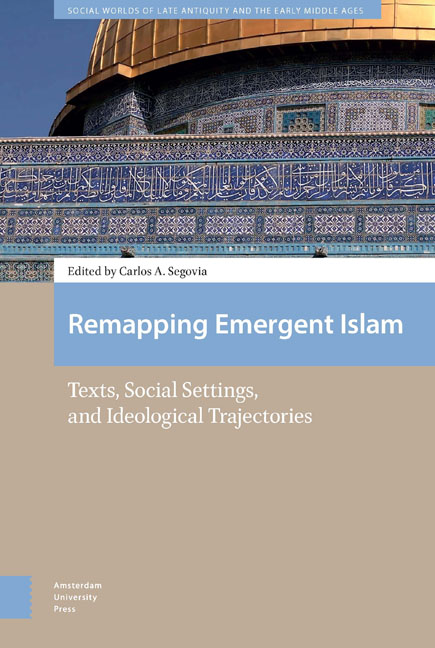Book contents
- Frontmatter
- Contents
- Introduction
- Part 1 Re-Assessing the Hypothesis of a Peripheral Jewish Background
- Part 2 An Encrypted Manichaean / Messalian Matrix?
- Part 3 Measuring the World’s Timeline… and Imagining the Afterlife at the Persian Court?
- Part 4 Conceptual Quicksand, Meta-Narratives of Identity, Texts and their Marginalia
1 - South Arabian ‘Judaism’, Ḥimyarite Raḥmanism, and the Origins of Islam
Published online by Cambridge University Press: 24 November 2020
- Frontmatter
- Contents
- Introduction
- Part 1 Re-Assessing the Hypothesis of a Peripheral Jewish Background
- Part 2 An Encrypted Manichaean / Messalian Matrix?
- Part 3 Measuring the World’s Timeline… and Imagining the Afterlife at the Persian Court?
- Part 4 Conceptual Quicksand, Meta-Narratives of Identity, Texts and their Marginalia
Summary
Abstract
Aaron W. Hughes explores the social and religious settings of South Arabia at the advent of Islam. Rather than assume that the ‘Jews’ of Ḥimyar were religiously normative, Hughes works on the assumption that they were not. This fluidity of religious forms and identities means that boundaries amongst Arabian Christianity, Judaism, and what would emerge as Islam were often ambiguous. And yet this ambiguity does not mean that there were not distinct Christianising and Judaising tendencies, given the lengthy history of these two religious traditions in the area. It is not simply the case that Islam emerged as the sum of other, more established monotheisms, but that Islam's appearance also played an active role in their self-definition.
Keywords: Early Islam, Late Antiquity, South Arabia, Raḥmanism, Judaism
To remap early Islam means to remap the entire Arabian Peninsula – from north to south, and from east to west, including of course neighbouring regions, and the kingdoms found within. Like other chapters, the present one combines what we know based on epigraphy and contemporaneous external references on the one hand, and later Islamic sources on the other, in order to problematise the latter while simultaneously thinking creatively about the former. This means asking fundamental questions, interrogating traditionally held opinions that have masqueraded as axioms, and moving the discourse of Islamic origins forward in a way that avoids earlier Orientalist assumptions or noncritical apologetical studies.
Rather than imagine Islam as a sudden rupture on the stage of world history, I work on the assumption, as all do in the subfield of Islamic origins, that the religion emerged, slowly and gradually, from a combination of pre-existent monotheisms and local Arab cultural and literary forms. As a result, Islam must be firmly situated within the context of late antiquity, rather than presented as that which terminated it. As a result, Islam must be firmly situated within the context of late antiquity, rather than presented as that which terminated it. The major question that we all must face, however, is just what this process would have looked like, on account of various textual lacunae and historical silences.
- Type
- Chapter
- Information
- Remapping Emergent IslamTexts, Social Settings, and Ideological Trajectories, pp. 15 - 44Publisher: Amsterdam University PressPrint publication year: 2020



